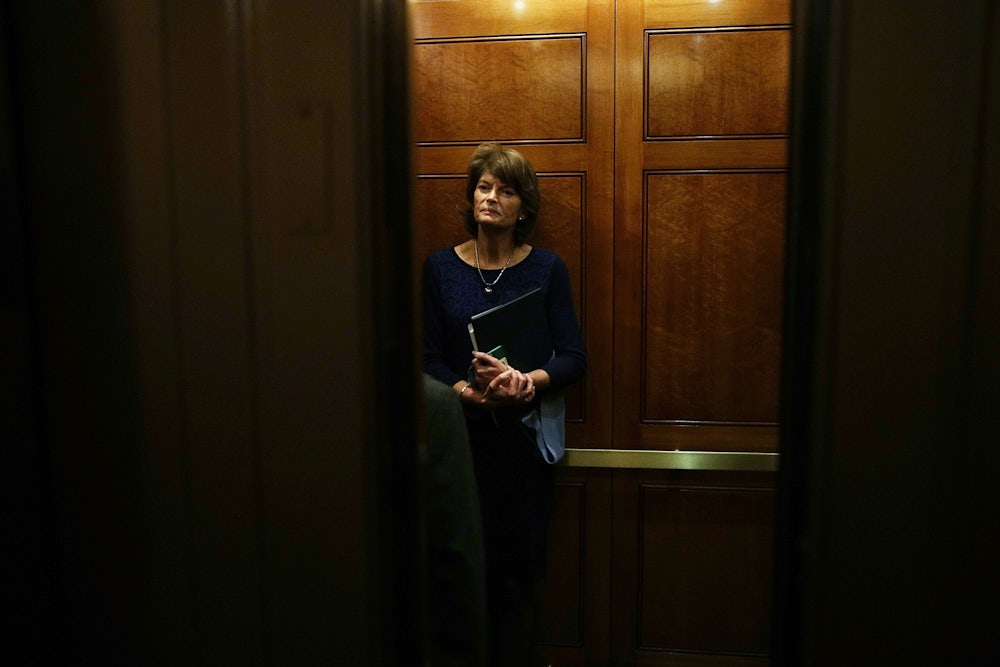On the opening night of the 2004 Republican convention, Georgia Senator Zell Miller delivered a blistering attack on the Democratic presidential nominee. Ridiculing John Kerry’s votes to cut military spending, Miller asked incredulously, “This is the man who wants to be commander in chief of our U.S. armed forces? U.S. forces armed with what? Spitballs?”
Miller’s speech transcended standard convention oratory for one reason: He was a Democrat, albeit a conservative one, who crossed party lines to endorse incumbent George W. Bush in the middle of the Iraq War. This kind of apostasy is rare in presidential politics, but that gives testimonials like Miller’s maximum credibility.
The argument—pushed by Miller and the Bush campaign—that Kerry was weak on national security may have been decisive in the close 2004 election. I remember a liberal Democratic nurse with a 10-year-old son in Des Moines telling me that she was reluctantly voting for Bush because “you don’t change presidents in the middle of a war.” Bush carried Iowa by just 10,000 votes.
The Zell Miller precedent has become relevant because there are signs that Donald Trump may finally have gone too far for beaten-down old-school Republicans and military leaders. Gassing a peaceful crowd so that Trump could strut across Lafayette Square to brandish a Bible, which Ivanka had carried over for him in her white $1,400 Max Mara bag, was likely the turning point. It certainly was for former Defense Secretary Jim Mattis. The participation of General Mark Milley, the chairman of the Joint Chiefs, in this walk of shame prompted Mattis to write, “We are witnessing the consequences of three years without mature leadership.” Think of all the provocations that Mattis grimly accepted with clenched teeth before he expressed his rage over the Battle of Lafayette Square.
Now, The New York Times reports that Republicans from George W. Bush to Senators Mitt Romney and Lisa Murkowski are balking at voting for Trump in November. And Democrats are preparing to roll out a “Republicans for Biden” coalition in the coming months, probably culminating in a night at the convention dedicated to disgruntled Republicans and former military leaders for whom the full horrors of a presidency built around an insecure, incompetent autocrat have become too much to bear.
Granted, we have been down the mythical road of Republican rebellion so often that we can recognize the trail markers left over from the Access Hollywood tape, the buddy movie with Vladimir Putin, the bromance with Kim Jong Un, the shakedown of the Ukrainian president, and the White House medicine show of “experts” touting quack remedies at the height of the pandemic.
But it would be a mistake to dismiss the Biden campaign’s outreach to mad-as-hell Republicans as folly.
At a minimum, the pointed attacks from Mattis, Murkowski, and Colin Powell (who announced Sunday that he is again voting for the Democratic nominee, as he has in recent presidential elections) have gotten to the president. Even by his usual standards, Trump seems more unhinged than a toppling door. According to a tally by Jennifer Jacobs of Bloomberg News, Trump set a new record for the most tweets and retweets he has ever fired off in a single day on Friday: 200. (That’s once every seven minutes, topping the old record he set during impeachment.)
The revolt of these prominent Republicans could do far more, though, than rattle the president. The target audience of Republicans for Biden would not be unswerving GOP partisans and MAGA-hat-wearing zealots too far gone to be lured back to reality. Rather, the goal would be to help sway soccer moms in the Phoenix suburbs and prompt troubled GOP party loyalists outside Detroit to leave the presidential line blank.
This strategy has worked whenever a political party has veered toward extremism. When the GOP nominated Barry Goldwater against LBJ in 1964, defectors such as Jackie Robinson were prominent members of an ad hoc group called “Republicans for Johnson.”
And in 1984, Jeane Kirkpatrick began a powerful speech at the GOP convention in Dallas with these words: “This is the first Republican convention I have ever attended. I am grateful that you should invite me, a lifelong Democrat. On the other hand, I realize that you are inviting many lifelong Democrats to join this common cause.”
The hawkish Kirkpatrick, once a close ally of Hubert Humphrey, was already serving as Ronald Reagan’s ambassador to the United Nations. But her excoriating the Democrats at the convention as “the blame America first” party carried an emotional heft far greater than if she had been a Republican all her life.
Reagan, in fact, is a testament to the persuasive power of political conversion. Reagan, who as a liberal Democrat made radio speeches for Harry Truman in 1948, liked to joke, “I didn’t leave the Democratic Party. It left me.”
That is a line that hopefully will be repeatedly quoted with the parties switched on Republican Night at the 2020 Democratic convention. The goal of this GOP outreach, it must be stressed, is not to turn the Biden campaign into pablum by mouthing centrist bromides. Rather, it is to recognize that the future of democracy depends on the largest coalition and the largest possible victory margin for Biden in November.
It will be daunting for Republican politicians to take the final steps from privately grousing about Trump to vowing to withhold their votes for the GOP nominee to actually endorsing his Democratic opponent. That’s why few officeholders have ever taken the Zell Miller route. But never has a sitting president been more out of control, more dangerous to the future of the nation than Trump. That is why I cling to the fantasy that Mitt Romney, Lisa Murkowski, and many others will demonstrate in the months ahead the courage of their hidden convictions.
